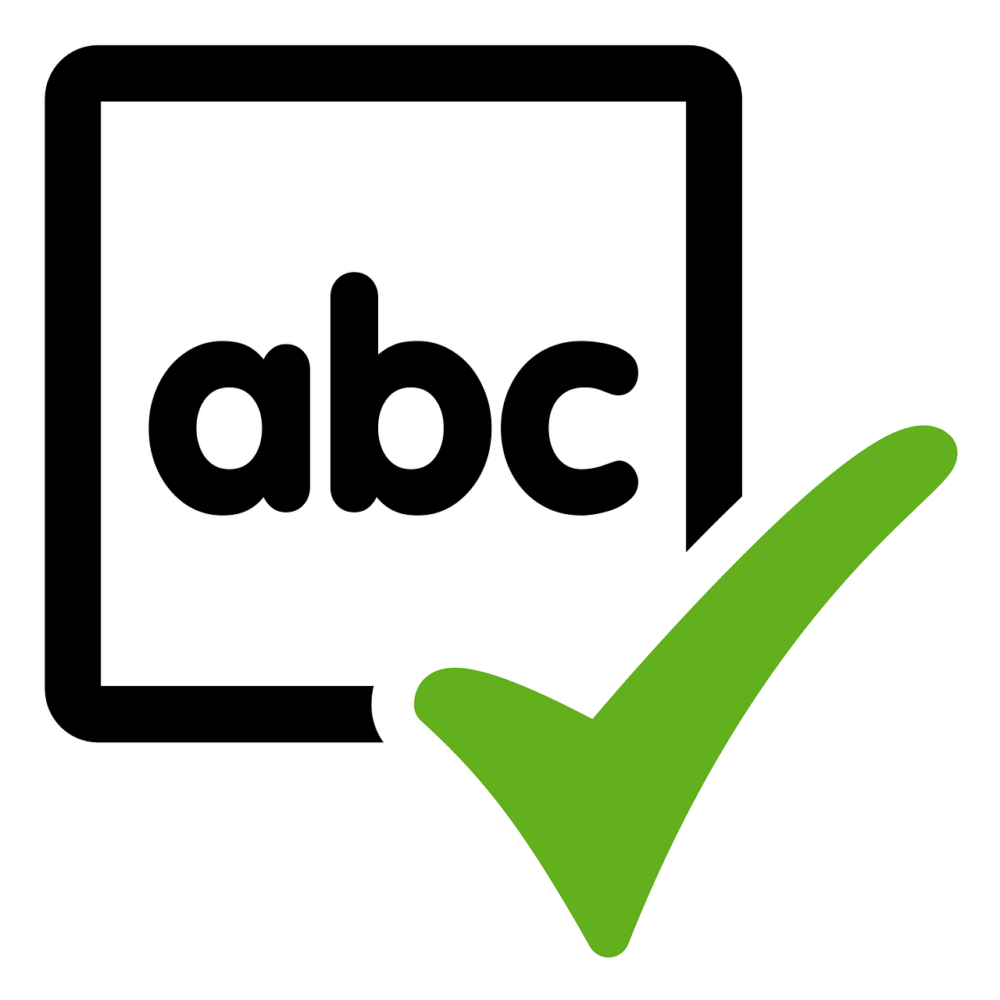“SHIT!” I’m pretty sure that this was the collective thought process of most creatives when they saw the awesome power of ChatGPT. This thing can design websites, write code, create copy, edit photographs and pick the kids up from school? All at the same time?!
Well, imma hang up ma writin’ spurs and head off to start a babysitting career take my place on the microchip assembly line. But now that the dust has settled and we’ve all had a chance to play with the tech, it seems as if there may not only be light at the end of the tunnel but a giant gleaming sun. So let’s ask ourselves, “How will AI affect copywriting and SEO in 2023?”
AI And Copywriting in 2023
First up, AI in copywriting is nothing new. Most copywriters have been using JSpell to catch typos and UK/US spelling, Grammarly to highlight errors and Hemingway to help write dynamic, impactful SEO-friendly sentences that really go out with a bang (boom boom).
At Pepperstorm Towers we’ve always embraced anything that improves workflow and increases turnaround times.
So when ChatGPT burst onto the scene, instead of running at OpenAI HQ with pitchforks — gotta be honest, this crossed our minds but that would mean getting on a plane and then into a cab and then finding a good hotel and a decent lawyer and a reliable alibi, etc. — we looked at how this new tech can help our workflow and better serve our clients.
What’s AI Gonna Change?
OK, so content farm* articles are out of the window. But we don’t do that stuff anyway. And now that anyone with $20-per-month access to ChatGPT (so everyone) has the ability to generate a tonne of robo-articles means that the internet will almost certainly get flooded with a surfeit of unedited AI articles.
The upshot? Crappy posts aimed at gamifying SEO are going to be even more devalued and quality, genuinely helpful articles are going to be even more valuable than ever. So far, so good.
* Poor-to-mediocre articles that stuff a bunch of keywords in every nook and cranny. Think the copywriting equivalent of a ‘CLICK BUY NOW’ banner ad.

Spellchecker is one of the OG AI copywriting tools.
What Does Google Say About AI-generated Content?
Speculation is fun (I mean, what if it really is only the stickers that are made in Taiwan?) but when the horse’s mouth is online, free and available, it’s better to go straight there.
In February 2023, Google published an article entitled ‘Google Search’s guidance about AI-generated content’ that gives a concise overview on its approach to AI content and how its use will affect a website’s search results.
It emphasises that its focus is on “Creating helpful, reliable, people-first content”. This is nothing new, as Google has always valued user experience; however, these goalposts are constantly moving, which is why we are always learning how to create helpful content.
So, it’s OK to use AI? Yes and no. “Appropriate use of AI or automation is not against our guidelines. This means that it is not used to generate content primarily to manipulate search rankings, which is against our spam policies.”
This ties into the extra ‘E’ that Google added to their famous E-A-T search rater guidelines last year (Expertise, Authoritativeness, and Trustworthiness) – it stands for ‘Experience’. It wants to know: Why are you important in your niche? Why are you an expert? What authority do you have?
It all comes down to your experience — the type of experience that you can only glean from living in the real world, not simply scraping the internet.
Getting straight to the heart of the matter, Google asks and answers the questions that’s on everyone’s lips. “Should I use AI to generate content? — If you see AI as an essential way to help you produce content that is helpful and original, it might be useful to consider. If you see AI as an inexpensive, easy way to game search engine rankings, then no.”
In sum, the easier it is to create robotic content, the more of it will be created. The takeaway? To set yourself apart from the droves of generic articles, lean into your humanity. Personalise your copy. Sprinkle in-jokes, unique turns of phrase and favourite colloquialisms like confetti throughout your paragraphs to remind your audience that they are communicating with you, you, YOU.
Can AI Write In A Brand Voice?
Creating reams of copy is all very well but unless the tone sounds like you then it’s going to be jarring to your audience and potentially very damaging to your brand. So can AI help here?
Well, ChatGPT can do a good impersonation of a Ryan Reynolds joke. And it can probably write an impressive happy birthday toast in the style of Matthew McConaughey. Well alright alright alright, that’s pretty cool. That’s because there is so much information on the internet describing the style of these two Hollywood titans that it can scrape it all together to produce a decent facsimile of what either of them might say in a given situation.
What about creating an entire blog post that highlights all of a Melbourne wedding photographer’s favourite venues in their home city and explains the reason why this person loves each one with personal anecdotes and authentic turns of phrase? Nope. It will mine Yelp and Google reviews (not famous for their accuracy) and churn out the same generic content as everyone else who is outsourcing everything to AI. It could potentially write it in the style of Dwayne Johnson, but I’m not sure how useful this will be. “Can you smell what Proud Mary Coffee is cooooooookiiiiiing?!” Actually, that’s quite good.
However, this doesn’t mean that AI can’t be used for brand voice copywriting. AI software can suggest synonyms and alternative phrasings that you may like and adopt for your brand voice so as to enhance your copy and make it the best version of what you want to say.
If your industry is geared towards trust and integrity (think photography, medical care, finance) then the slightest whiff of inauthenticity is likely to send potential clients running to a competitor who is communicating to them from the heart. Inserting expressions that are unique to you, taking the time to make your personality shine through — this is what will connect with your audience on a deeper, human level.

Your brand voice is the most important element of how you communicate with your audience.
How About Editing AI-generated Content?
Okaaaaay, we get it. Using ChatGPT to generate an entire article and then copying, pasting and hitting publish is clearly not going to work — see all the reasons listed above. But what about if a human (i.e. you) edits it before publishing? Is this hybrid content useful for your audience and/or search rankings?
Whether Google will request some sort of disclosure if you’ve used AI remains to be seen; however, the thought has certainly crossed its mind, as stated in the Google Search article mentioned above: “Should I add AI or automation disclosures to my content? AI or automation disclosures are useful for content where someone might think “How was this created?”. Consider adding these when it would be reasonably expected.”
In terms of your audience — if the article is accurate, informative, engaging and entertaining and written in your brand voice then your readers will not know the difference. The question is then whether it’s faster, easier and more effective to edit an AI-written article to get to this point vs. simply writing it from scratch.
So we took this tech for a test drive.
Pepperstorm’s Experience With ChatGPT Copywriting In 2023
We have a team of 20+ professional copywriters, editors, and social media managers who create content for a wide variety of clients every single day — so who better to try out this new tool?
The feedback was mixed, with some writers finding that it sped up certain writing processes and others finding that it was more trouble than it was worth. This is always going to come down to personal styles, preferences and workflows; however, the potential for it to accelerate certain areas of writing for some people is undeniable.
We all agreed on a few core principles:
– AI software can be great for prompts and obviating writer’s block, which speeds up the writing process.
– It’s an excellent spellchecker — in fact, it’s pretty much essential.
– It’s also helpful for correcting grammar. However, it’s important to note that if you prefer to write in a non-standard style (and this is a hella fun way to stand out, amirite?! 😎) then AI may strip your copy of these quirky, intentional ‘errors’ and affectations.
– It can be useful in suggesting alternative turns of phrase to avoid repetitive copy.
– It makes A LOT of mistakes. Factual errors, out-of-date information, and misquotes are rife amongst AI-generated articles. This is one of the key reasons as to why it may actually take longer to edit an AI-written article than simply creating one yourself.
– It can kill creativity. Not because it isn’t good enough but because it is very good at coming up with acceptable content. It can create grammatically correct blog posts that read well and persuade the reader that the author knows what it’s talking about. But this makes the potential errors/misinformation all the more dangerous, both in terms of misleading your audience and signalling to Google that you are not in fact an authority on your subject and you don’t have that all-important ‘Experience’ that it values so highly.
The overall takeaway seems to be that AI copywriting tools have massive potential in certain areas and can accelerate certain aspects of our work — however, they are very much an aid rather than a replacement.
So much more than simply writing goes into our process — understanding a brand and its goals, capturing a client’s voice that accurately reflects their personality, tailoring a bespoke keyword strategy to their potential audience, etc. — that the speeding up of editing, proofreading and certain SEO elements simply means that we can turn clients work around quicker.

A chilling vision of how AI will affect copywriting & SEO? Or a robot ally?
What Should You Use AI For In Copywriting & SEO?
AI copywriting tools are undoubtedly useful and I don’t think a Luddite-esque approach to this opportunity is going to help anyone. Here’s what we’ll be using it for:
Prompts & Inspiration
Although the blank page can be a writer’s best friend in terms of pure creativity, it can also be a nightmare if you’re on a deadline. Think of ChatGPT’s prompt function like that first sip of coffee…on repeat.
Keyword Strategy
It can generate a list of keywords based on your location, audience and goals. It’s super important to check how these fit into your desired strategy and use such tools as Google Keyword Planner or SEMrush to determine their traffic volume, competitive analysis, etc.
SEO Strategy
Title ideas, subheadings, meta descriptions and keyword placement; this is somewhere that Chat GPT may be able to help by suggesting a list of options from which you can choose your favourite.
Ad Copy
This is a good one. Let’s say you have to A/B test a bunch of different Google or Meta ads with slightly different copy for each of them. Instead of thinking of 50 different variations on ‘Click through to read more about buying an leather-embossed photo album’, you could use ChatGPT to generate some alternative phrasings* and then select your favourites (while editing as you wish).
* ChatGPT is only as good as the information that you feed it, which is why the Pepperstorm team is busy learning how to craft the perfect prompts to create the best results.
Creating Glossaries & Information-Based Lists
If you want an article that is pure information, as in a list of vendors, venues, flight routes, etc. with no brand voice then ChatGPT can do it in a jiffy.* (At the risk of repeating myself, you will need to check all of the info to make sure that it is accurate.)
* Fun fact: A jiffy is a measurable unit of time that physicists use to denote how long light takes to travel a distance of one femtometre, which is a millionth of a millionth of a millimetre. Electricians use it to describe the length of a single cycle of alternating current (so in a 50Hz system, a jiffy is one-fiftieth of a second). This little tidbit bears absolutely no relevance to this article other than to indicate that adding extra flourishes to basic information can be fun, useful and pleasantly distracting. Sorry if reading this makes you late for your train.
Automated Flows/Chatbots
This is another example of AI that has been around for donkey’s years. Chatbots are fantastic for automating lead generation processes and they are getting more and more accurate in the prompts and replies that they suggest based on the customer’s questions.
Through well-prepared typeforms, chatbots can send entire onboarding flows that share a ton of information both from and to your potential client before you even say ‘hi’. Just remember that at some point (probably sooner rather than later), your customer will want to speak to a human.
What Shouldn’t You Use AI For In Copywriting & SEO?
Everything else.
Website copy
This is a big no-no for anything other than prompts and inspiration. Every. Single. Word. Counts. So if you have 300 words to convey your personality and brand vision on your homepage then just think — is it really worth saving the hour or two that it would take to create truly unique copy that’s written from the heart and the head?
Blogs
As we touched on before, this really depends on the type of blog you’re writing, as well as your preferred workflow and methods of inspiration. Anything involves personal information, experience — it goes without saying that the robots don’t know this, so it really might be quicker to write the blog yourself.
Social copy
This is where you can really let your personality/brand voice fly, as people expect a bit more of a casual tone on social posts and replies. And if you’re talking casually, more to a friend then people expect genuine, heartfelt copy, more representative of how you communicate to your inner circle. (Unless you’ve started outsourcing your social life to ChatGPT, in which case God help you.)
Newsletters
As the name suggests, this should be a summary of your latest news (see, not just a pretty face!) so it’s best to personally tailor each excerpt from your blog and give your readers a reason to click through and explore more with dynamic, bespoke calls-to-action.
Most of us are constantly drowning in unwanted and irrelevant emails, so a well-crafted, personalised newsletter will look like a life raft amidst a sea of generic spam.

Did one of our writers get a little carried away whilst testing out AI copywriting tools? You be the judge.
AI Copywriting And Storytelling
Online success in the era of AI is all about quality over quantity. It’s about storytelling. And the best stories are the ones that are unique.
Uber CEO Travis Kalanick (allegedly) came up with the concept for the billion-dollar company when he couldn’t find a taxi in Paris. This story got his foot through the door of investors who then funded one of the most successful start-ups in history. He then spent nine months redesigning the company’s logo that got widely panned and subsequently left the business. Not all stories have happy endings. But I digress…
You have the opportunity to distinguish yourself from your competitors by simply sharing your thoughts, knowledge and industry experience in a personalised and engaging style. There may be a thousand other businesses offering a similar service in your city — but there’s only one ‘you’. This is your superpower when it comes to your content.
And while some superheroes may rely on performance-enhancing drugs (lookin’ at you, Popeye 💪) the best ones tend to lean towards pure, honest performance.
AI Copywriting And Plagiarism
We can’t give out legal advice (we pinky-promised our accountants that we’d stop doing that as the lawsuits were really starting to pile up #yolo); however, it’s pretty clear that AI-generated content raises a plethora of plagiarism concerns.
AI copywriting is essentially a reeeeeally advanced version of content spinning, so if you were to simply copy, paste and post then there’s a chance that some of the content will not only be unoriginal but also repeated on somebody else’s site who is doing the same thing. (In which case, did they copy you by proxy? Or did you copy from them…in the future? IT’S A MAZE WITHIN A MAZE!!!)
There are a ton of online plagiarism checkers that can specifically look for AI-generated content and the concept of ‘AI-assisted plagiarism’ or ‘AIgiarism’ (you know it’s serious when there’s a pun-inflected portmanteau involved) has entered the academic vernacular. It may be a legal and ethical grey area at the moment but using a robot to create all of your content and passing it off as your own is disingenuous at the very least.
Brightsides: ChatGPT can also draw up legal contracts so if you do get sued at least you’ll save a little time in courtroom prep.
What Do The Say About AI Copywriting & SEO
After 10+ years in the SEO copywriting industry, I’d like to consider myself an expert on the subject (I’ve certainly been called worse); plus, the entire Pepperstorm team has over a century of collective experience about the industry.
However, we’re always keen for someone to check any confirmation biases we may have and who better to do this than Yoast? The SEO plug-in behemoth hosted a panel of experts to discuss the future of SEO in a fun and lively format. If you’ve got a spare hour and are even remotely interested in SEO and online visibility for your brand, it really is worth a watch:
What Does The Future Of SEO Look Like?*
* TL:DR: Ultimately, people buy from people. For the rise of AI content, SEO is going to be all about branding, storytelling and human-to-human connection.
So, What Does AI Mean For Small Businesses?
AI will be imbued within practically every online aspect of small (and large) businesses’ day-to-day management in one way or another. However, the chances are that you won’t actually have to learn much about its functionality if at all. The online tools, plug-ins, chatbots etc. as well as any service providers will be doing the hard work for you, learning how to use
In terms of content, social and SEO — most small businesses don’t have the time to add this to their workload, even if AI can speed up some of the processes. To focus on serving clients and growing their business, most individuals and companies will look to outsource to somebody who understands the tech and can use it to create superior work at a faster pace.
Our Approach To AI Copywriting Tools
When used correctly, AI can enhance copy quality, improve SEO and speed up project turnaround times. So we’re 100% onboard with that. However, no matter how ‘intelligent’ ChatGPT becomes, it can’t know what’s inside a clients’ mind and memory.
That’s what our onboarding process is for. We get to know the real you, your past present and future so that we can write in a tone, highlighting the elements that you want to lean into.
By working with the robots rather than against them, we combine human experience and original thought with the acceleration and innovation provided by this exciting new tech. This means that we can take on more clients, expand our team and offer more services that are tailored to our clients’ needs.
So yeah, for now the pitchforks can stay in the cupboard. Although if there’s a ChatGPT blackout in the next 6 months, the entire Pepperstorm team was at your house all night watching Schitt’s Creek, mmmkay?





